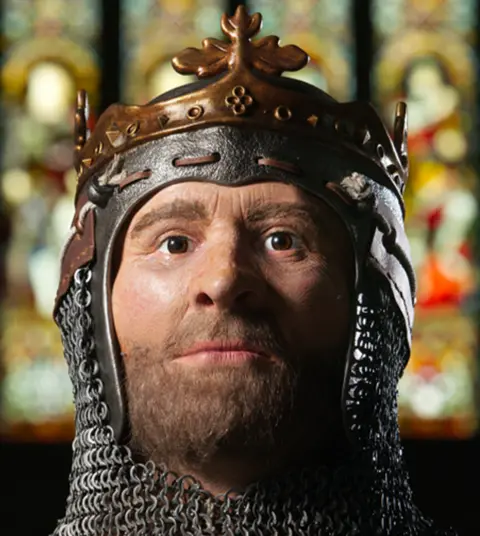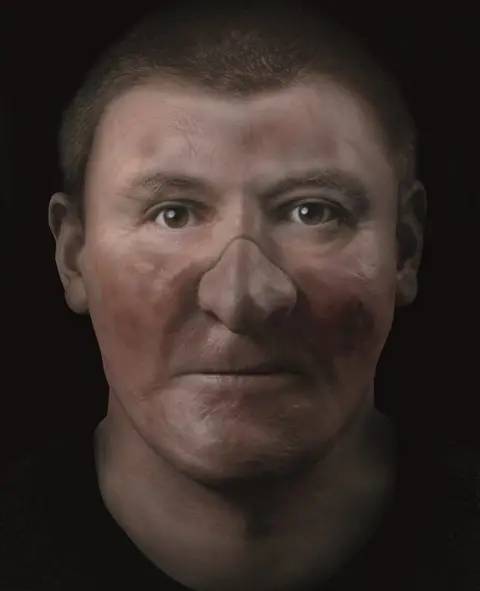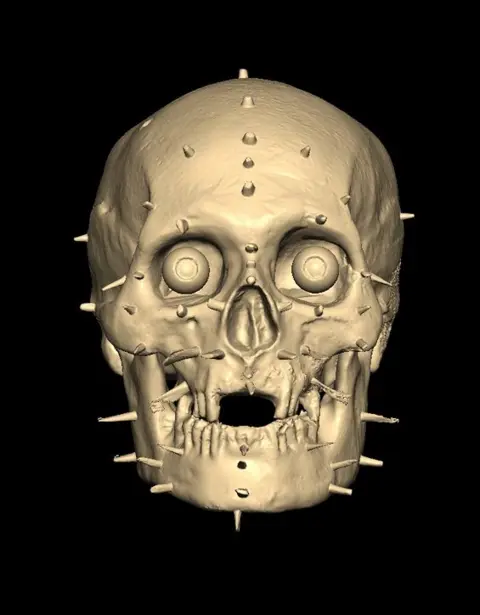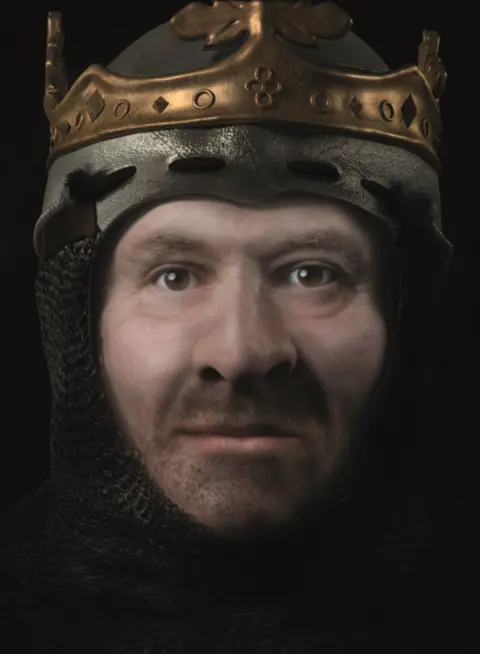Robert the Bruce 3D model 'most realistic ever produced'
 Historic Environment Scotland
Historic Environment ScotlandA 3D model of Scottish king Robert the Bruce's head has been unveiled to mark the 750th anniversary of his birth.
The reconstruction, which is on display at Dunfermline Abbey, is described as the most realistic ever produced.
It was created as part of a collaboration between historians from the University of Glasgow and craniofacial experts from Liverpool John Moores University.
The model was produced using details from two virtual images of The Bruce, who led the Scots to victory over English troops led by King Edward II at the Battle of Bannockburn in 1314.
 Historic Environment Scotland
Historic Environment ScotlandOne of the images showed the king with leprosy and one without - as historians have long debated whether The Bruce suffered from the disease.
A cast of his skull, which is held at the Hunterian Museum in Glasgow, was scanned to produce a 3D version with muscle formations and textured "skin" layered over it.
Dr Martin MacGregor, a senior lecturer in history at the University of Glasgow, came up with the idea of producing a model after the discovery of King Richard III of England's skeleton in Leicester in 2012.
 Historic Environment Scotland
Historic Environment ScotlandHe said: “In a lifetime of only 55 years, Robert Bruce achieved the impossible and restored peace and freedom to a war-torn and colonised kingdom. Contemporary sources tell us much about his remarkable life, but virtually nothing about his appearance.
“This is what persuaded a team of historians, museum curators, geneticists, forensic scientists and medical artists to combine to create a new 3D depiction of the head of the hero king, based upon the skull cast taken from a skeleton in a tomb discovered within the ruins of Dunfermline Abbey in 1818."
The head of the model is dressed in a helmet and topped by a crown, similar to one The Bruce is believed to have worn at the Battle of Bannockburn.
Dr MacGregor added: "It is fitting that Dunfermline Abbey, where Robert Bruce was buried in 1329, should host an exhibition which brings us face-to-face with Scotland’s greatest monarch.”
 Historic Environment Scotland
Historic Environment ScotlandAlasdair Campbell, Interpretation Officer at Historic Environment Scotland (HES), said: “We are delighted to host the most accurate model of Robert the Bruce’s face to date.
"Robert the Bruce’s story is an important part of Dunfermline Abbey, and we are excited for visitors to be able to visualise this story in a new way, particularly as we celebrate his 750th birthday.”
The 3D model will be on display at Dunfermline Abbey until Saturday 7 September.
